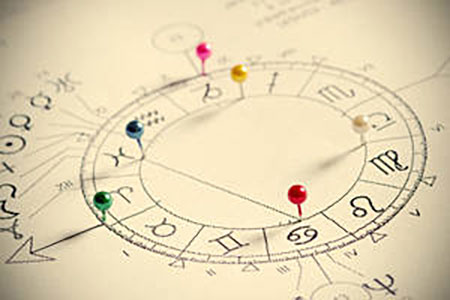life design
Yoga And The Tarot Archetypes
 When I’m not doing psychic readings, I enjoy engaging in activities that support a healthy lifestyle, such as Yoga and Herbalism. Although I spent many years training with Yoga masters from around the world and I am a certified Yoga instructor, I continue to learn more each time I get onto the mat.
When I’m not doing psychic readings, I enjoy engaging in activities that support a healthy lifestyle, such as Yoga and Herbalism. Although I spent many years training with Yoga masters from around the world and I am a certified Yoga instructor, I continue to learn more each time I get onto the mat.
While practicing the other day, I found myself thinking about the Tarot cards while in a particular yoga posture. It was the asana known as the Hero’s pose, or Virasana. The pose involves kneeling or sitting in between your bent legs.
As I was sitting in this stretch, I was wondering how the posture got its name, which comes from the Sanskrit word vira meaning ‘hero.’ It occurred to me that a hero was someone who had to think of someone else or others in that moment more than themselves. When we are pushed to our edge, in that moment of vulnerability, it makes us stronger. The same humility can be found in certain Yoga postures.
Then the Emperor card from the Tarot deck came to mind. The Emperor in a reading can show a ruler or leader who is strong, confident, and who guides others. Might there be an ancient connection with Yoga and the Tarot?
I then began to think of other Yoga postures and how they might correlate with the other Major Arcana cards in the Tarot.
The first that came up for me was The Hanged Man. This iconic card features a figure hanging upside down from a tree. Hanging from a tree in this way would certainly make one see the world from a different perspective. Interestingly, the headstand pose in Yoga, Sirsanasa, aims to create mental balance and physical poise. Continue reading
The Spiritual Power Of Joy
 I have decided that this year I would consciously invite more joy into my daily life. Joy is the feeling of happiness, pleasure or fulfillment that comes from having success, finding good fortune, or achieving a sense of well-being. The wonderful thing about joy is that it can be found in both large and small doses.
I have decided that this year I would consciously invite more joy into my daily life. Joy is the feeling of happiness, pleasure or fulfillment that comes from having success, finding good fortune, or achieving a sense of well-being. The wonderful thing about joy is that it can be found in both large and small doses.
Joy is an enormously powerful spiritual force. Spontaneous laughter can shift a mood in an instant, and tears of joy come at moments that move us to our core. Joy is a state of mind that focuses on the present, despite our circumstances.
Joy brings renewed energy, a feeling of lightness to our body and mind. Suddenly there is enough energy to get things done that need to be done. Joy invites action, instead of procrastination, and encourages gratitude over envy, and peace over anger.
Joy lingers after the laughter and invites us to a state of mind that is peaceful, full of grace, ready to extend compassion, and find forgiveness. In a state of joy spontaneity comes easily, inspiration and intuitiveness peak, and our creativity flows.
Children are masters of demonstrating joy. They are comfortable living in the moment and not filtering out any opportunity to celebrate. They carry no baggage, or expectations. They are wonderful teachers of this powerful spiritual tool.
Anchor your soul purpose and choose conscious ways you can invite and practice joy in your daily life. Even a small dose will do, and it may lead you to seek out other experiences that resonate with your spirit and add to your experience of joy. Notice what makes you smile. Pay attention to the person, the activity or the situation that uplifts your spirit. Stop and savor the feeling.
Simplicity and joy go hand in hand, so don’t overlook the little things. Practice smiling! Smiling releases endorphins which create that sensation of relaxation and happiness.
Now Is A Hopeful Time For Your Future Happiness
 When 2021 finally rolled around a month ago, many of us expressed a great feeling of relief and welcomed the New Year with open arms. The year 2020 was extremely challenging, to say the least. But now we are already one month into a hopeful new year. At last, with some light appearing at the end of the tunnel, we can begin to feel a renewed sense of hope and optimism.
When 2021 finally rolled around a month ago, many of us expressed a great feeling of relief and welcomed the New Year with open arms. The year 2020 was extremely challenging, to say the least. But now we are already one month into a hopeful new year. At last, with some light appearing at the end of the tunnel, we can begin to feel a renewed sense of hope and optimism.
However, we will have to muster some more patience and courage. We can still not let down our guard for the foreseeable future. For the sake of our loved ones and our communities, we must continue to follow the latest health and safety protocols for just a while longer.
In addition, we should continue to give what we can from where we are and with what we have, whether this is in the form of financial donations, personal support for those who are still struggling, or healing thoughts for our family, friends, neighbours, colleagues and, indeed, the entire planet. We must also empathize with those who have climbed steep mountains over the past year and see how we might help them with their journeys.
For the wise and sensible the coming months can be a time of great personal growth and inner reflection. We can pat ourselves on the back for what we have accomplished thus far and have overcome under great duress. We can now look forward with more confidence. We have, after all, come this far!
We must now gather our thoughts and feelings and focus on what we can do to generate genuine happiness, well-being and fulfillment for ourselves and others in the future. It is okay if others do not yet share the same optimism and positive outlook for the future. They must walk their own path. Their negativity must not stop us from learning, growing, expanding and loving life.
The Spirits Of The Mountains Are My Soulmates
 There are times in our lives when we know that our inspirations are coming from something beyond the personality. These visions come from a land beyond the physical, even beyond words. They are concepts we have no words for, we have only our inner knowing. The personality moves over and we find ourselves relying upon something beyond the five senses, or sheer logic.
There are times in our lives when we know that our inspirations are coming from something beyond the personality. These visions come from a land beyond the physical, even beyond words. They are concepts we have no words for, we have only our inner knowing. The personality moves over and we find ourselves relying upon something beyond the five senses, or sheer logic.
Perhaps that sixth sense is the emerging force, which is the next step in the evolution of the human race. A developing being knows it is no longer appropriate to depend only upon the physical world. This being will develop the skills it needs to see and feel and work within the unseen territory of the soul.
Once we acknowledge the soul’s existence and approach it with respect and sacredness, the personality becomes aligned with the soul. With this alignment comes respect for all life, and many difficulties usually experienced with the unconscious personality can be avoided.
When our soul becomes mindful and directly involved with the physical world, we greet each day with the deepest part of ourselves, and all activities become gratifying and purposeful. It is the gratitude that we give each day that gets us off the karmic wheel of debt, because we now see the sacredness of all life. W
I have much to be grateful for. The desert’s barrenness, along with the mountains’ majesty, stripped me of my ego long enough to allow the healing forces of the sagebrush to greet my soul. Sage has healed my physical body during illness, my emotional and mental bodies during depressions and confusion, and it has healed my soul of desolation.
The What-ifs That Go Bump In The Night
 When I grow up, I want to be a lightworker! Okay, so I’ve grown up and I’ve been a psychic and healer for many years. The question now is, how do I take back, or erase from my mind’s eye all that I’ve seen? ‘Wounded healer, heal thyself’ is a very old truth, which still holds merit after many years of being bandied about.
When I grow up, I want to be a lightworker! Okay, so I’ve grown up and I’ve been a psychic and healer for many years. The question now is, how do I take back, or erase from my mind’s eye all that I’ve seen? ‘Wounded healer, heal thyself’ is a very old truth, which still holds merit after many years of being bandied about.
Perhaps today it is more true than ever. In today’s world we are dealing with much more fear and what-ifs than ever before in our lifetime. Someone, or something, somewhere – the news media for one – is always preying on our fears. Panic and perpetual fear is the name of the game for many in our world these days.
Psychics, astrologers, mediums, diviners, and energy healers, among other, are known by the universal term ‘lightworkers.’ This is ironic, considering we often have to delve into the darkest fears of most people head-first, in order to help our fellow humans come to some form of clarity, healing or conclusion.
And what happens when the lightworker’s battery begins to fade from overuse and not enough recharging? Can helping other people face their fears make our own fears and limiting beliefs become larger by proxy, thus causing our own light to dim?
Lightworkers are born healers and teachers. At our core we want to help everyone. We know that inner peace comes from within. However, some of our clients are open to guidance, while others are not. Maybe I only speak for myself as a healer, but those who refuse guidance often haunt me far longer than those who embrace it. They are the ones who keep me up at night. They are the ones who make me doubt and question what I know in my heart to be true, based on my ability to listen to a Higher Power and relay messages spirit wants to share.
Face your fears, I tell myself. Even as a wounded healer, I must continue to face my self-doubt and remember to look upon the bright side: the countless souls whose lives I have been blessed to change and help make into something brighter, better and more fulfilling.
Truths In Your Astrological Chart
 An astrological chart can be a wonderful tool – a marvelous means of gaining insight into who we are as a person. Reading your astrological chart and having it interpreted correctly is the only way to be able to use this tool effectively.
An astrological chart can be a wonderful tool – a marvelous means of gaining insight into who we are as a person. Reading your astrological chart and having it interpreted correctly is the only way to be able to use this tool effectively.
Many people think that their Sun Sign is the only important aspect to know, and little do they realize that it is a mere piece of the astrological puzzle.
We are complex beings, made up of a variety of astrological aspects. It is important to combine all these elements and influences, in order to truly function at the level of which we are capable. The world around us needs a combination of things to ensure the continuation of life and we are exactly the same.
If you over water a plant you can kill it. Too much, or too little, fresh air and sunlight may or may not damage a plant. We are just another expression of nature, except that we have arms and legs.
For example, a young lady has her Sun in Taurus, her Moon and her Venus in Aries and her Ascendant (or rising sign) in Libra. Let’s go one further, and say that all these planets fall into her Seventh House. Can you determine what this young lady’s Achilles heel might be? In other words, what might her downfall or her soft spot be?
The answer is love. The reason for this is that her Moon (who she is on the inside, her deepest darkest self) is in Aries – a fiery passionate sign, prone to impulse. Her Venus is also in Aries, and her rising sign Libra (the ultimate lover). They are all in or near enough to the seventh house, which rules love and partners, to just about control every aspect of her being, until she has been properly ‘broken in’, just like you would a wild horse.
She has great, harsh lessons to learn in her life about love. She will, no doubt, while she is younger and more resilient (at least in her mind) fall in love many times a day, and for each moment give it her absolute all.
Still Hanging On To The Wrong Person?
 Are you still hanging on to the wrong person? I know you adore him. I know you love her. I understand that you believe you are soulmates and ‘meant to be.’
Are you still hanging on to the wrong person? I know you adore him. I know you love her. I understand that you believe you are soulmates and ‘meant to be.’
But be aware that your beloved has free will. If they are not exactly alignment with you, no matter how you strongly feel about them, nothing will come of your ‘situationship.’ They are on their own journey and you cannot will someone to be your lover or life partner. It is nothing more than the beginning of a colossal heartbreak.
I have witnessed many love-struck people hang on for years to someone that has either left them for good, or kept stringing them along. Some of them have even married and had children with someone else, and yet, they still hang on. They often fervently believe their love interest will someday return to them and then they will live happily ever after. Well, the truth of the matter is that they will not. The other person has made their choice and walked away for a reason.
This new year, with all that has been going on in the world, it may be time to take a few deep breaths and have a self-reflective moment. Take a good, hard look at your life choices and your relationships.
If you are making unwise, self-sabotaging choices, consider what it may be that is not feeding your soul? What is it that is really missing in your life? Maybe it is time to release what no longer serves you. Simply let it go. Find your inner peace, and just be happy and content with yourself and who you truly are.
As a psychic advisor, I encounter the good, the bad and the ugly. I have seen much trauma and damage done, sometimes almost irreparable, to people in toxic relationships and love obsessions. Marriages of several years simply falling apart or ‘trusted’ partner walking out with zero notice. I have watched many go through failed relationship after failed relationship, always with the same results. The result is always the same: excruciating heartbreak.
When the victims of these bad relationship choices are encouraged to do some soul-searching, to see what it is inside of them that is compelling them to go back to the same type of person, time and time again, they are offended and become angry.